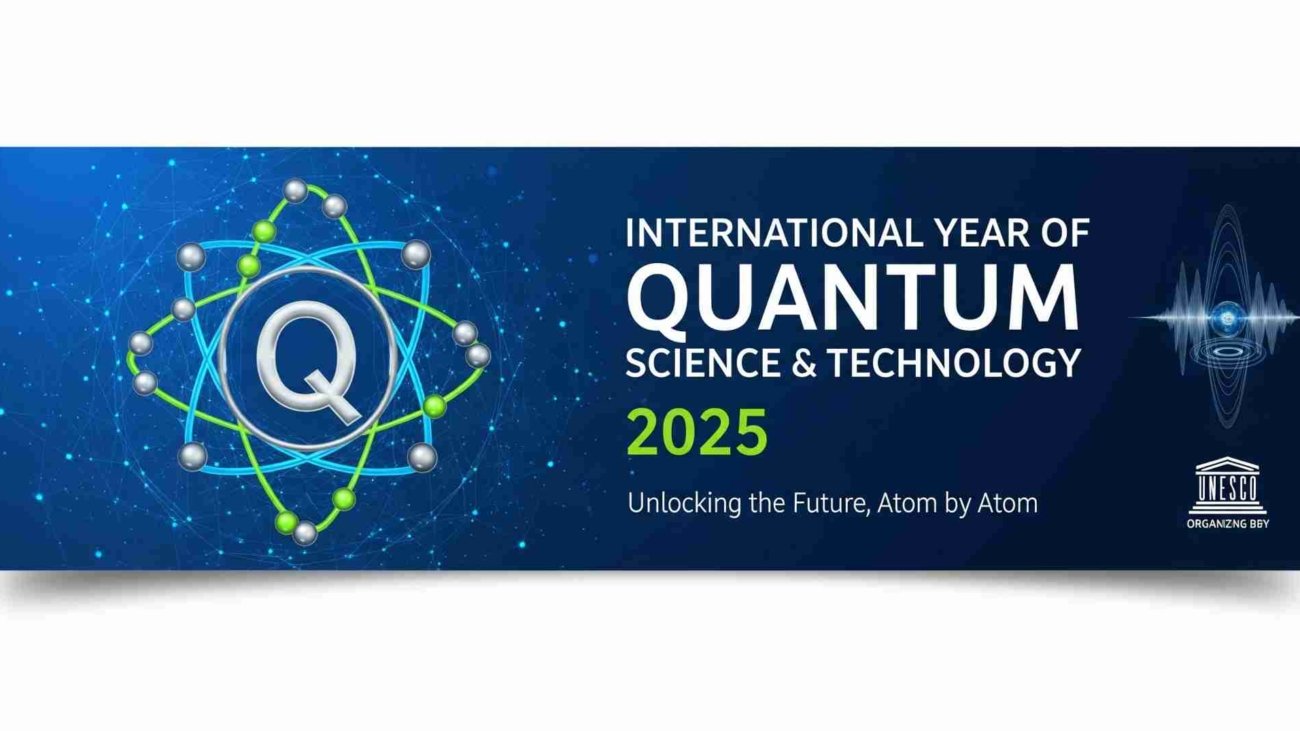Introduction
The year 2025 has been officially declared the International Year of Quantum Science & Technology (IYQST). This global initiative, endorsed by UNESCO and leading scientific communities, aims to highlight the importance of quantum science in shaping our present and future. From revolutionizing communication to transforming healthcare, quantum science is no longer confined to laboratories—it is becoming a central driver of innovation worldwide.
This declaration comes at a time when the world is experiencing rapid advancements in artificial intelligence, data security, clean energy, and advanced computing. Quantum science is the missing link that could redefine these fields, making 2025 a landmark year for global collaboration and awareness.
What is Quantum Science & Technology?
Quantum science explores the behavior of matter and energy at the smallest scales, governed by the principles of quantum mechanics. Unlike classical physics, which deals with predictable outcomes, quantum mechanics reveals a world of probabilities, entanglement, and superposition.
Quantum technology applies these principles to build practical systems, such as:
Quantum Computers – Machines capable of solving problems beyond the reach of classical computers.
Quantum Communication – Ultra-secure channels resistant to hacking through quantum encryption.
Quantum Sensors – Tools with extreme precision for navigation, medical imaging, and climate monitoring.
Why 2025 Has Been Declared the International Year
The declaration of 2025 as the International Year of Quantum Science & Technology is not just symbolic; it serves multiple purposes:
Global Awareness – Educating the public about the transformative potential of quantum science.
Collaboration – Encouraging international cooperation among scientists, governments, and private industries.
Policy Making – Guiding regulations and ethical use of quantum technologies.
Education & Skills – Inspiring the next generation to pursue careers in physics, mathematics, and computer science.
Applications of Quantum Science in 2025 and Beyond
1. Quantum Computing
Quantum computers can perform calculations at unimaginable speeds compared to traditional computers. Tech giants like Google, IBM, and startups worldwide are racing to achieve quantum supremacy—the point where quantum computers outperform classical ones.
Potential uses: drug discovery, financial modeling, climate predictions, and optimization in logistics.
2. Quantum Communication & Security
In an age of cyber threats, quantum cryptography promises unbreakable encryption. Several countries, including China and the US, are investing in quantum internet projects to safeguard national and financial data.
3. Healthcare Innovation
Quantum simulations can model complex molecules, speeding up the development of medicines and vaccines. Hospitals may also use quantum sensors for early disease detection and advanced imaging.
4. Clean Energy Solutions
Quantum research is being applied to nuclear fusion, solar energy materials, and efficient battery technologies. These innovations could accelerate the global shift toward renewable energy.
5. Space Exploration
Space agencies are exploring quantum navigation systems that do not rely on GPS. This could help in deep-space missions where traditional signals fail.
International Collaboration in Quantum Science
The declaration of IYQST is a call for unity. Several international organizations and countries are aligning their efforts:
European Union’s Quantum Flagship Program – A €1 billion initiative.
United States National Quantum Initiative Act – Boosting research and workforce training.
China’s Quantum Satellite (Micius) – Pioneering quantum communication from space.
The International Year will bring conferences, workshops, and public engagement activities to strengthen these collaborations.
Challenges Facing Quantum Technology
Despite its promise, quantum technology faces several hurdles:
Technical Barriers – Quantum computers require extreme conditions like near-absolute zero temperatures.
Cost of Research – Developing and maintaining quantum labs is expensive.
Skilled Workforce – There is a shortage of scientists and engineers trained in quantum technologies.
Ethical & Security Concerns – Uncontrolled use of quantum computing could disrupt encryption systems worldwide.
By addressing these challenges through global cooperation, 2025 aims to pave the way for responsible and sustainable quantum innovation.
Why 2025 Matters for Students and Researchers
For students, 2025 represents an opportunity to step into the next frontier of science. Universities and research centers worldwide will host events, hackathons, and online courses related to quantum science. Governments are also funding scholarships and training programs to prepare a future-ready workforce.
Researchers, on the other hand, will benefit from greater international visibility, funding opportunities, and cross-border partnerships.
The Road Ahead
Declaring 2025 as the International Year of Quantum Science & Technology is more than a celebration—it is a commitment to shaping the future. Quantum science is set to impact industries, national security, healthcare, climate action, and even everyday life.
Just as the 20th century was defined by breakthroughs in electronics and digital computing, the 21st century is likely to be remembered as the Quantum Century. By building awareness and encouraging collaboration, the world is preparing for a transformation that could be as significant as the industrial or digital revolutions.
Conclusion
The International Year of Quantum Science & Technology in 2025 is a reminder that the future is already here. With applications across computing, security, medicine, energy, and space, quantum technology holds the key to solving humanity’s most complex challenges.
As countries, industries, and individuals come together to explore this exciting frontier, one thing is certain: 2025 will mark the beginning of a new era where quantum science moves from theory to real-world impact.

Leave A Comment